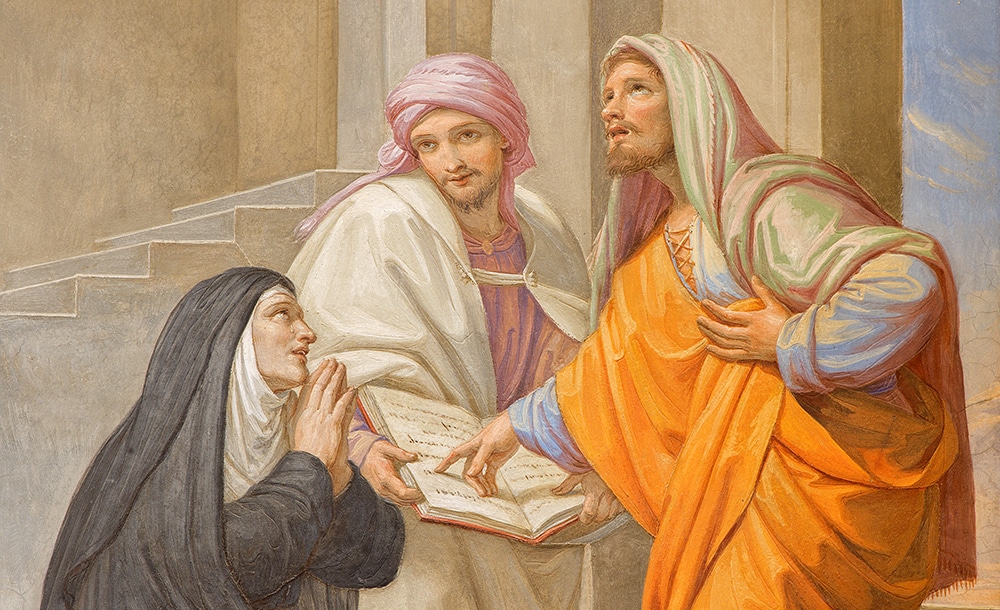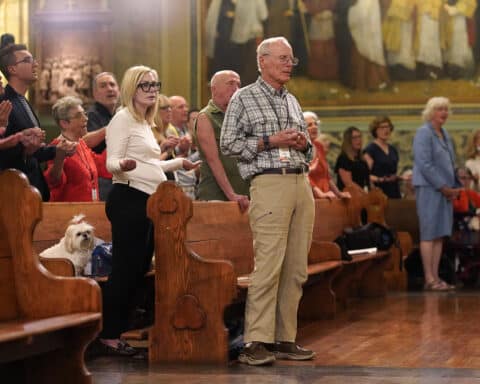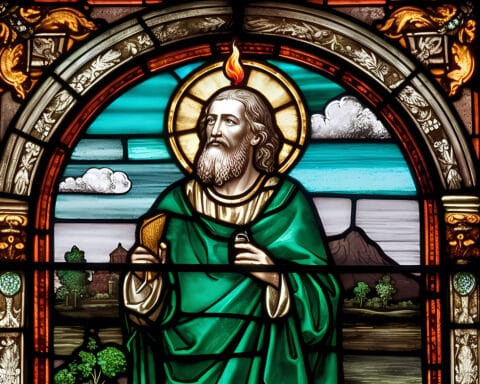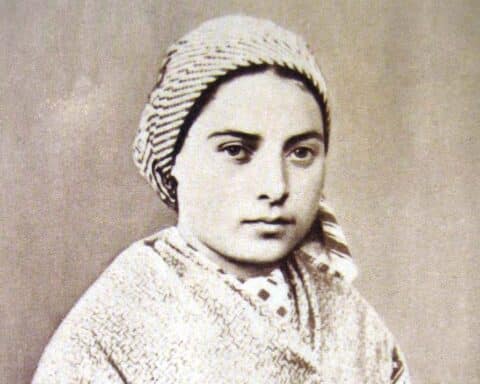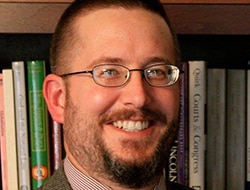
The Church presents these memorials back to back for a reason. Just as many feasts of Our Lord are preceded or followed by (one day or eight days later) a feast of Our Lady (more so in the traditional calendar than in the current revised one), using the liturgical calendar to make explicit the bond between a mother and child reminds us of something we know about the gift of faith: That gift is never individual but always personal.
To say that the gift of faith is personal means that it isn’t just between me or you and God. We receive the gift of faith from God, of course, but in both infant baptism and the reception of an adult into the Church, the parents and sponsors ask for that gift on behalf of the person being baptized. And just as importantly, they then promise to feed that person’s faith.
Baptism isn’t a hurdle to jump over, a rite of passage, after which the parents or sponsors of the baptized can leave the rest in the hands of God. They have pledged to take on a special role to try to ensure that the baptized person does not lose his or her faith.
That St. Monica’s feast day falls before St. Augustine’s is fitting. She preceded her son in the Faith and prayed for many years for his conversion. Her prayers were answered, and Augustine was baptized 17 years after his mother had been.
Most accounts of the last months of Monica’s life after Augustine’s baptism speak of the great joy that mother and son shared in their communion in Christ. But after 17 years of tears every night, Monica surely did not believe that her duty was complete. She no longer needed to pray for Augustine’s conversion, but I have no doubt she prayed every day for his persistence in the Faith — and continued to do so after her death.
If Augustine could lose his faith and needed the prayers of his mother even after his baptism, we, too, need the prayers of others to strengthen our faith. And those of us who are parents must continue always to pray for our children, and not merely for their health and physical well-being. Faith is a gift, and like any gift, we can reject it. And God has given us the gift of free will, which is not so much about the freedom to act as we choose but (as the Catholic historian John Lukacs reminds us in his autobiography “Confessions of an Original Sinner”) about accepting responsibility for our actions.
In previous columns, I have written about the human need for ritual, and the responsibility of parents to provide it to help feed the gift of faith in their children. While nothing can relieve us from that responsibility, we must recognize that even parents who asked the Church for the gift of faith for their child cannot, in the end, force that child to embrace that gift. If they could, it wouldn’t be a gift, after all.
All we can do is learn from the example of St. Monica and pray — not just that a child may come back to the Faith, but that he or she may never lose her love for the gift she has been given.
Scott P. Richert is publisher for OSV.

